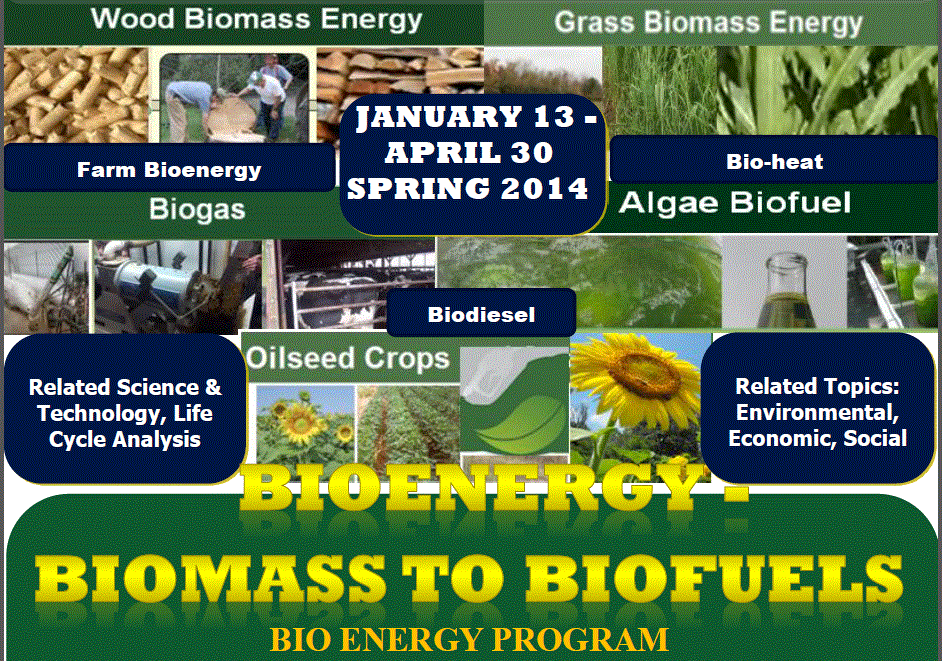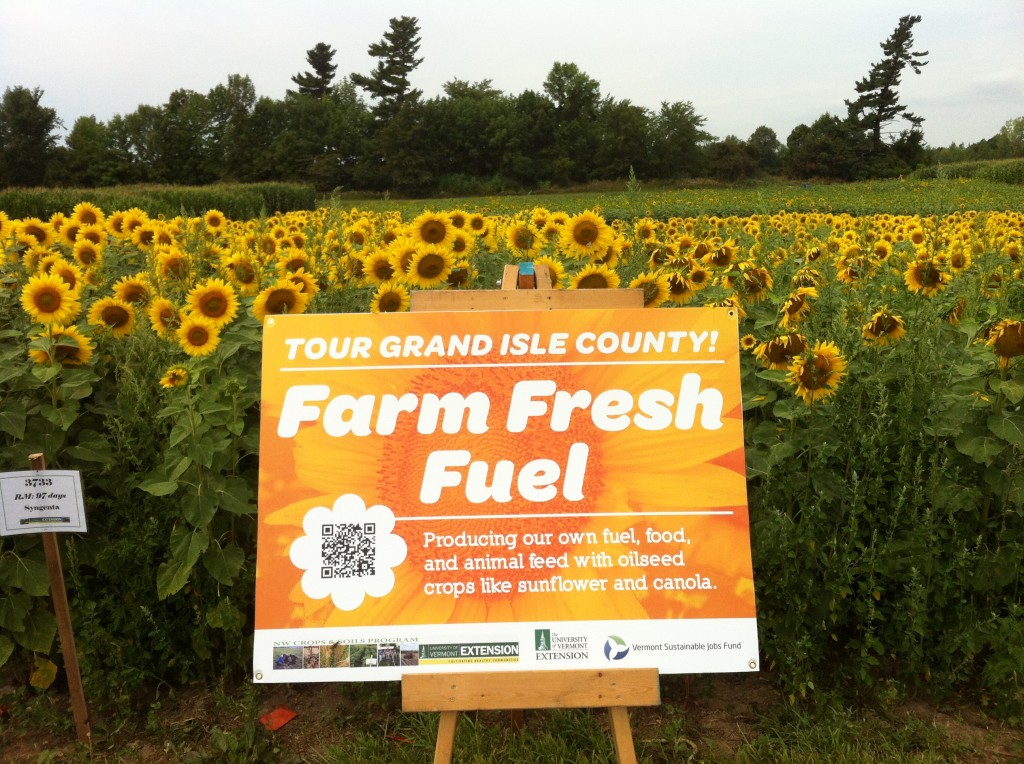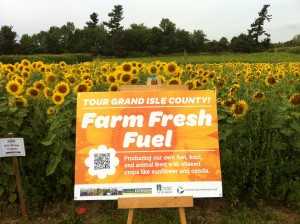January 13, 2014 to April 30, 2014
Thursday & Fridays 9:00AM – 12:00PM (no classes during the regular breaks/holidays, plus 2 weeks self-study for the course project; final exam in May)
Location: UVM campus & throughout Vermont for field trips/hands on experience
Details/Course Website: 4 Credit through ENSC, NR & TRC (3 & 2 credits only through ENSC) http://go.uvm.edu/7y1rr
CERTIFICATE OF ACHIEVEMENT: awarded for successfully completing the 4 credits.
DETAILS: Experts in following areas will provide hands-on instruction in a wide range of topics including:
- LIQUID BIOFUELS (seed-based biodiesel; bioethanol; conversion of waste oil to biodiesel; and advanced biofuels including algae-biofuel & microbial biofuel)
- SOLID BIOFUELS (wood & grass energy, pelletization)
- BIOGAS & BIO-ELECTRICITY (the farm-based energy)
- BIOHEAT, BIOMASS CONVERSION TECHNOLOGIES FOR BIOFUEL, BIOFUELS/ENERGY RELATED ENVIRONMENTAL, ECONOMICS, & SOCIAL ISSUES
- OTHER wide-range of Biofuels related science & technology topics, background & literature
Topics & Experts: http://go.uvm.edu/eg1bx.
This course is designed to provide hands-on experience in all possible Bio-Renewable Energy areas to prepare participants from diverse backgrounds for jobs in the BioEnergy / Biofuels industry, or higher education in the field, or related entrepreneurial endeavors in bioenergy / biofuels areas.
CONTACTS: For syllabus related questions contact the Lead Instructor, Anju Dahiya, at adahiya@uvm.edu To register, email http://learn.uvm.edu/contact/ ) or call 800-639-3210. To make a phone or in-person appointment with a Continuing Education Advisor to discuss your options, call 802-656-2085.
INSTRUCTORS: UVM FACULTY MEMBERS and EXPERTS from VT-based Biomass/biofuels businesses (see a list on the course website).
PARTICIPANTS/STUDENTS
All welcome: Degree and non-degree seeking students, budding entrepreneurs, teachers (interested in developing curriculum or projects at school or college levels), farmers, and others.
MEANS OF INSTRUCTION
- ON CAMPUS CLASSES: BY UVM FACULTY MEMBERS and EXPERTS from VT-based biofuels businesses
- HANDS-ON FIELD WORK & SERVICE LEARNING PROJECTS involving tours to Farms/Biofuel facilities & related projects. Check out past SL projects at: http://go.uvm.edu/xa20i
- TALKS by guest-speakers/experts from businesses
- BIOFUELS EQUIPMENT DEMONSTRATIONS by professionals
- ONLINE CLASSES: supplementary classes/information including video clips and discussions
Three course listings to register from:
http://learn.uvm.edu/courselistspring/course.php?term=201401&crn=12170
http://learn.uvm.edu/courselistspring/course.php?term=201401&crn=12075
http://learn.uvm.edu/courselistspring/course.php?term=201401&crn=14731
MEET FORMER STUDENTS: http://go.uvm.edu/2xgs8
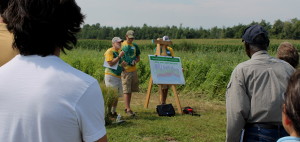 The University of Vermont Extension Northwest Crops and Soils team held their annual Field Day on Thursday, August 1, 2013 from 10:00am to 3:30pm at Borderview Research Farm in Alburgh, Vermont.
The University of Vermont Extension Northwest Crops and Soils team held their annual Field Day on Thursday, August 1, 2013 from 10:00am to 3:30pm at Borderview Research Farm in Alburgh, Vermont.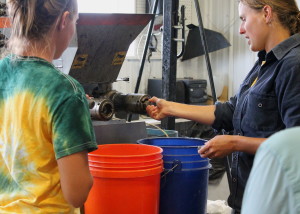 om researchers and technicians focused on cover crops, irrigation systems, sunflowers for cooking oil and biodiesel, wheat varieties, aerial seeding, hops variety trials and demonstration of a mechanized hops harvester, and demonstration of an oilseed press.
om researchers and technicians focused on cover crops, irrigation systems, sunflowers for cooking oil and biodiesel, wheat varieties, aerial seeding, hops variety trials and demonstration of a mechanized hops harvester, and demonstration of an oilseed press.



